The Modern College Mental Health Landscape
Today’s college students face unprecedented challenges balancing academic demands, social pressures, and preparation for future careers. For students at Alabama institutions like Auburn University and University of Alabama, these challenges can be particularly significant as they navigate the transition to independence while managing rigorous academic programs.
The mental health statistics among college students are concerning, with anxiety and depression rates continuing to rise nationwide. For student-athletes, these concerns are compounded by performance pressures, intense training schedules, and public scrutiny.
Brain-Based Approaches for Academic Excellence
One of the most promising developments in college student support involves advanced neurobiological approaches. QEEG brain mapping provides detailed visual representations of brain activity, allowing for precise identification of attention, anxiety, and cognitive processing patterns that may impact academic performance.
This technology measures electrical activity across the brain, creating a comprehensive map that can guide personalized intervention strategies. For students struggling with focus, test anxiety, or information processing, QEEG offers objective data beyond self-reported symptoms.
Many students wonder about the practical experience of these treatments. Resources explaining what QEEG brain mapping feels like during a typical session help demystify the process for those considering this advanced option.
Neuromodulation approaches, including neurofeedback, work by training the brain to optimize its functioning through real-time feedback on brainwave activity. For college students juggling complex academic material, extracurricular commitments, and social development, these approaches offer targeted strategies for enhancing cognitive performance.
Understanding the differences between various neuromodulation techniques – including QEEG, TCMS, neurofeedback, and biofeedback – helps students and their families make informed decisions about pursuing these advanced interventions.
Trauma-Informed Support for Student Success
College transitions often trigger or exacerbate previous traumas, whether from childhood experiences, sports injuries, or other adverse events. For many students, these unresolved traumas significantly impact academic performance, social relationships, and overall wellbeing.
Brainspotting therapy, developed by sports medicine specialist Dr. David Grand, offers a neurobiologically-focused approach particularly effective for college students. This modality identifies specific eye positions that connect with neurological pathways to traumatic memories, allowing for efficient processing without extensive talk therapy.
The neurobiology of trauma involves dysregulation of the limbic system and overactivation of the amygdala, contributing to anxiety, hypervigilance, and concentration difficulties. Brainspotting helps downregulate these emergency response systems, promoting access to higher-order thinking essential for academic success.
For student-athletes at institutions like Troy University or Jacksonville State, these trauma-informed approaches address both performance anxiety and sports-related traumas that may impact competitive outcomes.
Supporting Neurodivergent College Students
Many college students struggle academically not because of effort or intelligence, but because of neurodevelopmental differences that impact information processing, attention, and executive functioning. Neurodiversity-affirming approaches recognize these differences as variations rather than deficits.
For students with ADHD and anxiety, the college environment presents particular challenges around organization, time management, and focus. These students often benefit from combined approaches addressing both neurological differences and emotional regulation.
College environments are typically designed for neurotypical students, creating additional barriers for those with sensory processing differences, alternative learning styles, or social communication variations. Comprehensive support systems must accommodate these differences rather than expecting conformity to standardized approaches.
Many neurodivergent students experience burnout during their college careers – a state of complete mental and physical exhaustion resulting from constant adaptation to neurotypical expectations. Addressing this requires specialized supports recognizing unique processing styles and energy management needs.
Students with overlapping conditions like depression and autism face compound challenges that traditional campus supports may not adequately address. Specialized approaches recognizing these intersections offer more effective pathways to academic success.
Holistic Approaches for College Wellness
Supporting college students effectively requires addressing physical wellness alongside mental health. The mind-body connection plays a crucial role in cognitive performance, emotional regulation, and stress management – all essential components of academic success.
Micronutrition approaches offer complementary strategies for optimizing brain function through targeted nutritional support. For students experiencing depression, anxiety, or attention difficulties, addressing underlying biochemical imbalances can enhance conventional therapeutic approaches.
Mindfulness practices provide another valuable tool for college students navigating academic pressures. Meditation and mindfulness training help students develop present-moment awareness, emotional regulation skills, and stress management techniques that transfer directly to improved academic performance.
For students experiencing anxiety and panic, somatic approaches addressing physical manifestations of stress can provide immediate relief while building longer-term resilience. These body-centered techniques recognize that emotional states have physical correlates requiring integrated intervention.
Specialized Support for Student-Athletes
Student-athletes face unique challenges balancing rigorous academic requirements with demanding training and competition schedules. For athletes at institutions like University of Alabama or University of South Alabama, these demands can contribute to significant stress and performance anxiety.
Peak performance enhancement approaches offer specialized support addressing the intersection of athletic and academic performance. These integrated techniques help student-athletes optimize focus, manage competitive anxiety, and develop resilience – skills transferable between sports and academics.
The pressures of collegiate athletics often contribute to mood disorders that may go unrecognized amid demanding schedules and performance expectations. Identifying and addressing these concerns early can prevent academic decline and athletic performance issues.
For many student-athletes, performance anxiety represents a significant barrier to reaching their potential both academically and athletically. Specialized approaches addressing the neurobiological underpinnings of anxiety offer efficient relief supporting overall college success.
Accessibility Through Teletherapy and Group Support
One of the most significant barriers to mental health support for college students involves accessibility. Demanding schedules, transportation limitations, and privacy concerns can prevent students from seeking necessary help.
Teletherapy services have revolutionized mental health access for college students, allowing them to connect with providers regardless of location. This approach proves particularly valuable for students at institutions like Snead College or Bishop State Community College who may have limited on-campus resources.
Group therapy options offer another valuable format for college students, combining peer support with professional guidance. Teletherapy groups can address specific concerns like anxiety management, performance enhancement, or ADHD strategies within a community context.
For students at smaller institutions like Miles College or Talladega College, teletherapy provides access to specialized services that may not be available on campus, expanding support options beyond limited institutional resources.
Supporting Diverse Student Populations
Effective college support systems must recognize and address the unique needs of diverse student populations. LGBTQIA+ students often face additional stressors related to identity development, discrimination, and family concerns.
Similarly, students from historically marginalized communities may experience additional layers of stress related to representation, belonging, and navigating predominantly white institutions. Culturally responsive approaches recognize these unique challenges and provide tailored support addressing both individual and systemic factors.
Students with chronic health conditions face particular challenges balancing medical management with academic demands. Support for those experiencing chronic pain and post-surgical depression must address both physical symptoms and their emotional impacts.
For students experiencing grief and loss during their college years, specialized support recognizing the impact of bereavement on academic functioning proves essential for maintaining progress toward educational goals.
Professional Development and Burnout Prevention
For graduate students and those in professional programs, burnout represents a significant concern. Medical students face extreme pressure, sleep deprivation, and emotional demands that can lead to psychological distress. Specialized resources addressing physician and MD burnout can help these students develop sustainable professional practices.
Similarly, students in high-pressure fields like law, business, or engineering benefit from early intervention addressing professional burnout. These approaches focus on building resilience, establishing boundaries, and developing self-care practices that prevent exhaustion.
Integrated Support for Today’s College Students
Supporting today’s college students requires comprehensive approaches addressing the complex intersection of academic demands, developmental transitions, and mental health concerns. By integrating advanced therapeutic modalities like QEEG brain mapping, brainspotting, and neurofeedback with traditional counseling and academic support, institutions can create environments where all students can thrive.
For Alabama students at institutions ranging from major universities to community colleges, access to these specialized supports can make the critical difference between struggling and thriving during the college years. The investment in comprehensive student support not only improves academic outcomes but prepares graduates to enter their professional lives with resilience, self-awareness, and emotional well-being—perhaps the most valuable education of all.
Alabama College Resources
Taproot Therapy Collective offers specialized support for students attending colleges and universities throughout Alabama. We understand that each campus has its own unique culture, pressures, and resources, and we tailor our approach accordingly.
Major Universities
For students at Alabama’s largest universities, we offer comprehensive mental health support:
- University of Alabama: Specialized support for students dealing with the pressures of attending a large, competitive university.
- Auburn University: Targeted therapy services for Auburn students facing academic pressure, social challenges, or mental health concerns.
- University of Alabama at Birmingham (UAB): Specialized support for UAB students, with particular expertise in helping those in demanding healthcare programs.
- Samford University: Tailored therapy services for students at this private Christian university, with sensitivity to faith-based concerns.
State Universities & Colleges
We also provide specialized support for students at state universities and colleges across Alabama:
- Jacksonville State University: Teletherapy services for JSU students dealing with academic stress, relationship challenges, or mental health concerns.
- University of Montevallo: Support for students at this public liberal arts university, with sensitivity to the unique pressures of arts and humanities programs.
- Troy University: Both in-person and teletherapy options for Troy students, including support for military-affiliated students.
- University of South Alabama: Teletherapy services for USA students, with particular expertise in supporting those in healthcare programs.
- University of Alabama in Huntsville: Specialized support for UAH students, with understanding of the unique pressures faced by those in STEM fields.
- Auburn University at Montgomery: Tailored therapy services for AUM students balancing academic demands with work and family responsibilities.
Community Colleges
Community college students face unique challenges, including balancing academics with work, family responsibilities, and financial pressures. We offer specialized support for students at:
- Jefferson State Community College: Both in-person and teletherapy options for Jeff State students juggling multiple responsibilities.
- Lawson State Community College: Tailored therapy services for Lawson State students, with sensitivity to the unique challenges faced by community college students.
- Shelton State Community College: Support for Shelton State students dealing with academic, personal, or mental health challenges.
- Gadsden State Community College: Therapy services for Gadsden State students, with understanding of the unique pressures of community college life.
Historically Black Colleges and Universities (HBCUs)
Alabama has a rich tradition of historically Black colleges and universities (HBCUs), and we offer culturally sensitive, trauma-informed care for students at these institutions:
- Alabama State University: Specialized support for ASU students, with understanding of the unique cultural and social context of HBCU experience.
- Alabama A&M University: Tailored therapy services for A&M students, with sensitivity to the unique pressures and strengths of the HBCU community.
- Tuskegee University: Support for Tuskegee students, with respect for the university’s rich history and traditions.
- Miles College: Therapy services for Miles College students, with understanding of the unique challenges and strengths of small HBCU communities.
Comprehensive Support for All Alabama College Students
For students at any college or university in Alabama, we offer a comprehensive teletherapy program that makes quality mental health care accessible regardless of location. Our teletherapy services are designed to accommodate busy schedules, limited transportation, and the need for privacy and confidentiality.
In addition to our college-specific resources, we offer therapy services in numerous communities throughout Alabama, making it easier for students to access care whether they’re living on campus or commuting from home. From Birmingham to Huntsville, Mobile to Montgomery, we’re committed to making mental health support accessible to students across the state.
Bibliography
Beech, H. (2023). Perinatal Therapy for Women and Mothers. Get Therapy Birmingham. Retrieved from https://gettherapybirmingham.com/haley-beech-perinatal-therapy-for-women-and-mothers/
Blackstock, J. (2023). Joel Blackstock Bio. Get Therapy Birmingham. Retrieved from https://gettherapybirmingham.com/joel-blackstock-bio/
Danner, M. (2023). Marie Danner. Get Therapy Birmingham. Retrieved from https://gettherapybirmingham.com/marie-danner/
Hayes, P. (2023). IFS, Somatic Experiencing, Lifespan Integration, and EMDR Teletherapist. Get Therapy Birmingham. Retrieved from https://gettherapybirmingham.com/pamela-hayes-ifs-somatic-experiencing-lifespan-integration-and-emdr-teletherapist/
Hawley, A. (2023). Alice Hawley LPC. Get Therapy Birmingham. Retrieved from https://gettherapybirmingham.com/alice-hawley-lpc/
Mishalanie, J. (2023). Dr. Jason Mishalanie. Get Therapy Birmingham. Retrieved from https://gettherapybirmingham.com/dr-jason-mishalanie/
Pizarro, D. (2023). What Does QEEG Brain Mapping and Neurostimulation Feel Like? Get Therapy Birmingham. Retrieved from https://gettherapybirmingham.com/what-does-qeeg-brain-mapping-and-neurostimulation-feel-like/
Taproot Therapy Collective. (2023). QEEG Brain Mapping and Neurostimulation Neurofeedback. Get Therapy Birmingham. Retrieved from https://gettherapybirmingham.com/brain-mapping-and-neurostimulation-neurofeedback/
Taproot Therapy Collective. (2023). Brainspotting. Get Therapy Birmingham. Retrieved from https://gettherapybirmingham.com/treatments/brainspotting/
Taproot Therapy Collective. (2023). Emotional Transformation Therapy (ETT). Get Therapy Birmingham. Retrieved from https://gettherapybirmingham.com/emotional-transformation-therapy-ett/
Taproot Therapy Collective. (2023). Holistic Micronutrition for Mental Health Issues. Get Therapy Birmingham. Retrieved from https://gettherapybirmingham.com/treatments/holistic-micronutrition-for-mental-health-issues/
Taproot Therapy Collective. (2023). Jungian Therapy. Get Therapy Birmingham. Retrieved from https://gettherapybirmingham.com/treatments/jungian-therapy/
Taproot Therapy Collective. (2023). EMDR. Get Therapy Birmingham. Retrieved from https://gettherapybirmingham.com/treatments/emdr/
Taproot Therapy Collective. (2023). Parts-Based Therapy. Get Therapy Birmingham. Retrieved from https://gettherapybirmingham.com/treatments/parts-based-therapy/
Taproot Therapy Collective. (2023). Meditation & Mindfulness. Get Therapy Birmingham. Retrieved from https://gettherapybirmingham.com/treatments/meditation-mindfulness/
Taproot Therapy Collective. (2023). Somatic Experiencing. Get Therapy Birmingham. Retrieved from https://gettherapybirmingham.com/somatic-experiencing-dr-peter-levine/
Taproot Therapy Collective. (2023). Therapy for Anxiety and Trauma in Vestavia Hills. Get Therapy Birmingham. Retrieved from https://gettherapybirmingham.com/therapy-for-anxiety-and-trauma-in-vestavia-hills-alabama/
Taproot Therapy Collective. (2023). Therapy for UAB College Students. Get Therapy Birmingham. Retrieved from https://gettherapybirmingham.com/therapy-for-uab-college-students/
Taproot Therapy Collective. (2023). Teletherapy for College Students in Alabama. Get Therapy Birmingham. Retrieved from https://gettherapybirmingham.com/teletherapy-for-college-students-in-alabama/
Waites, J. (2023). James Waites Counselling for MDs & Physician Burnout. Get Therapy Birmingham. Retrieved from https://gettherapybirmingham.com/james-waites-counselling-for-mds-physician-burnout/
Wood, K. (2023). Kristi Wood Bio. Get Therapy Birmingham. Retrieved from https://gettherapybirmingham.com/kristi-wood-bio/


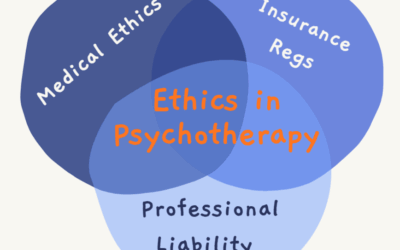
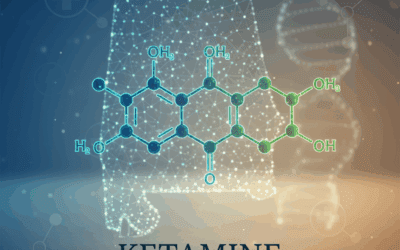
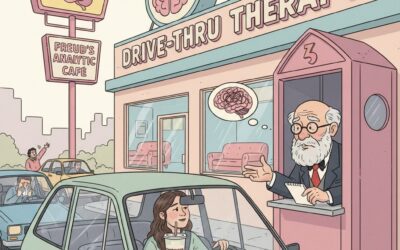












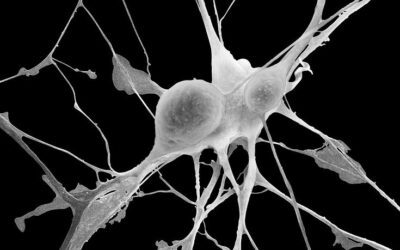






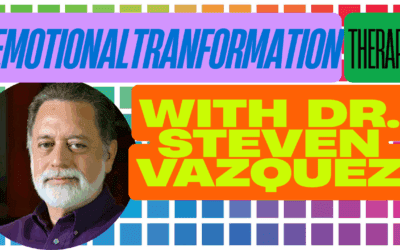
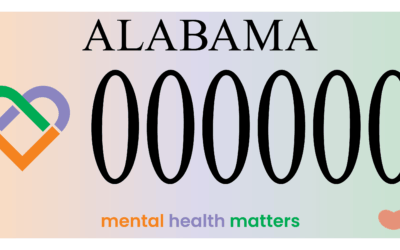

0 Comments